Where next for the Tories?
A look at where the Conservative Party go next after an utterly disastrous first month of the Liz Truss premiership.
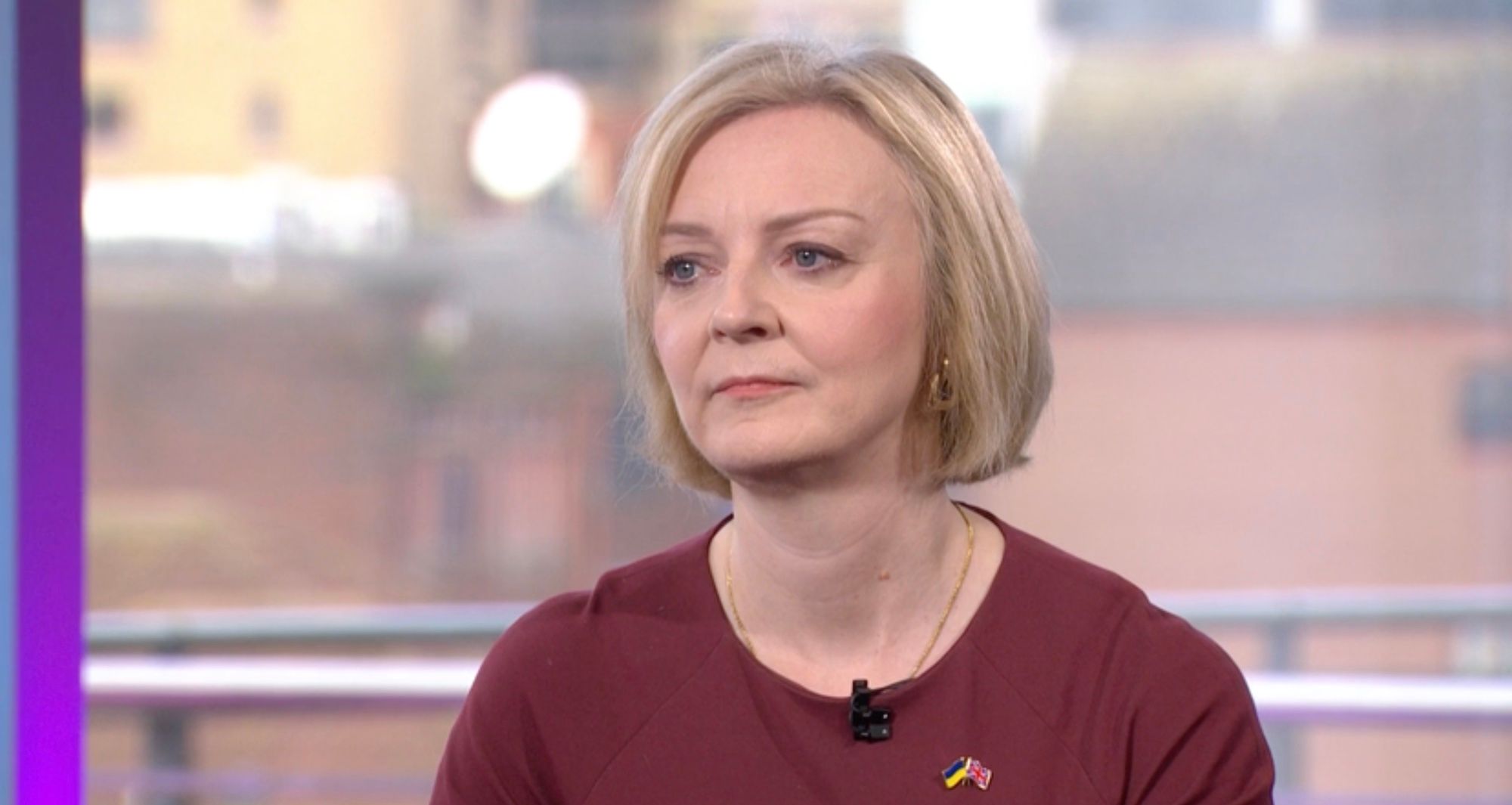
For years a familiar trope has echoed through Twitter. Every time an electoral opinion poll has been published, Corbynites and Tories alike (apparently convinced that they were, every time, hilarious) would moan that Sir Keir/Sir Keith/Sir Korma should be 20 points ahead, and as lifelong Labour supporters, they must now withdraw their support.
It doesn't take long to find examples.
I'm a lifelong Sir Keith fan, and as much as it pains me to say it, literally any other leader would be 20 points ahead of a government led by Liz Truss, during a cost of living crisis, and after 200,000 unnecessary deaths - not 7!
— j (@jrc1921) September 12, 2022
For heaven's sake Sir Keith, go now!
Now, after last week's dramatic self-destruction, Labour is finding itself 30 points ahead in the polls – a lead not enjoyed by any political party since the 1990s.
Something fundamental has changed: there has been a seismic electoral movement away from the Conservative Party and towards Labour. Not before time.
If the polls that have been coming out this week were replicated at a General Election, the Tories face an absolute annihilation. We're not just talking about losing a majority, we're talking about being beaten into third place by the Scottish National Party. This would be unprecedented in modern British political history.
So, where on earth do the Conservative Party go next? Can they undo the damage they've inflicted upon themselves this year? Do they have a chance of beating Labour at the next general election?
In all likelihood, the answer is that the Conservative Party are finished as an electoral force for years to come. Their compulsive obsession with clinging to power means that it's highly unlikely that Liz Truss will resign. She is an ardent believer in the nonsensical economic policies she and Kwasi Kwarteng are currently defending, and she can't fire the Chancellor without throwing herself under the bus.
That said, it doesn't mean she can't use him to shield her. This morning on Kuenssberg, Liz Truss admitted that the abolition of the 45% tax rate was not discussed with Cabinet prior to the announcement, and followed up that revelation by laying the blame squarely on Kwasi Kwarteng; "it was the Chancellor's idea," she muttered.
Leaving aside the apparent insanity of the Chancellor making an electorally toxic policy announcement at the dispatch box without briefing Cabinet beforehand, the signs of Conservative Party infighting are already beginning.
Resident nutjob-in-chief Nadine Dorries (Twitter account restored after its mysterious disappearance) swooped in to defend Kwasi Kwarteng – a surefire sign for Kwarteng that he's already screwed.
One of @BorisJohnson faults was that he could sometimes be too loyal and he got that. However, there is a balance and throwing your Chancellor under a bus on the first day of conference really isn’t it. 🤞 things improve and settle down from now. https://t.co/72cBRWo2c1
— Nadine Dorries (@NadineDorries) October 2, 2022
Michael Gove told Keunssberg that the government was "inadequate" in its assessments of what needed to happen, and that the policy announcements were "not Conservative".
My local MP and full-time waste of space Simon Clarke was also briefing this morning that it was "not true" that Liz Truss had "ordered" King Charles to "stay away" from next month's COP27 summit, amidst rumours that Liz Truss will row back on Britain's environmental pledges.
Finally, Tory Chairman Jake Berry announced that any Conservative MPs who vote against Kwarteng's budget will be expelled from the party.
All in all, a pretty juicy morning.
This level of desperate in-fighting is hopelessly unsustainable and will continue to drag the Tories further into the mud.
So there's a couple of options for what happens next. I warn you, none of them are particularly pleasant.
Option 1
The 1922 Committee
The first option is that Conservative MPs remove the leader. Under Conservative Party rules, there isn't an option to do this in the first twelve months of a leader's tenure. However, there is speculation that since the 1922 Committee can effectively rewrite the rules if required, pressure may build to such a boiling point that they do so, and Truss loses a vote of confidence.
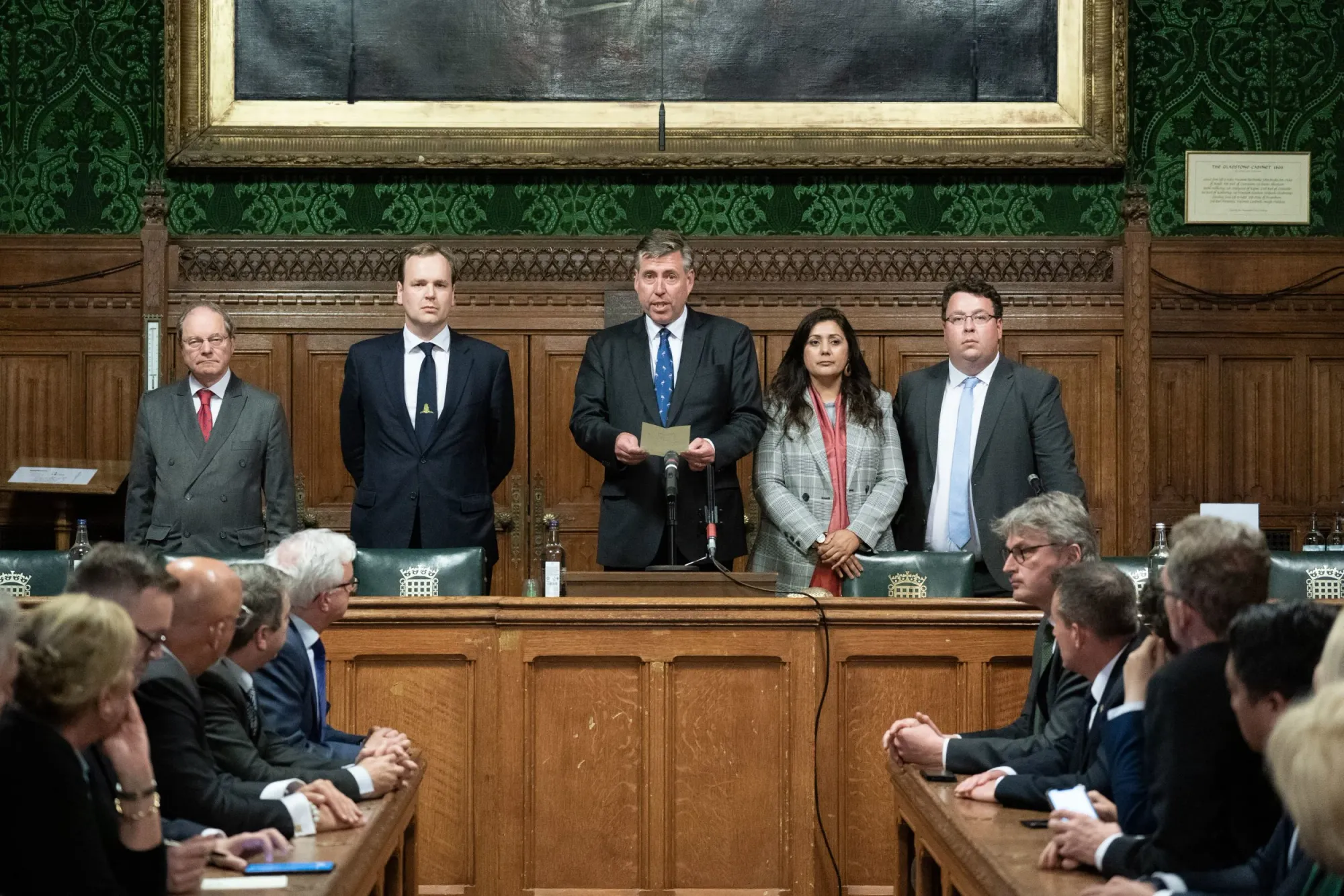
We then embark down the same self-important ritual we've endured this summer: a Conservative leadership election. Given that a majority of Conservative MPs at least had the wit to realise that Truss was a bad choice last time around, only to be overruled by the party members, God only knows where that ends up.
In the mean time, the country continues to fall into chaos with widening strikes, growing inflation and the crises of rising energy and mortgage costs.
And with comments like those of Jake Berry today, who insisted that if people are struggling with bills they should simply "earn more", you can see a scenario in which Conservative MPs look at the dangerous nonsense being spouted around them and say, "enough is enough".
Chances of happening: 6/10
Damage inflicted: 6/10
Option 2
Collapse of government
If – as seems likely – Truss and her band of incompetents in Cabinet cannot get a grip of the various crises facing Britain, it's possible that social order starts to unravel. We're talking mass housing repossessions, rental evictions, people freezing over winter. We're talking a General Strike, social disorder and the effective collapse of the economy.
General strikes are rare in Britain. There's only ever been one – in 1926 – and it didn't work. It lasted nine days, but the government had enlisted volunteers to maintain essential services, and the trade unions gave up.
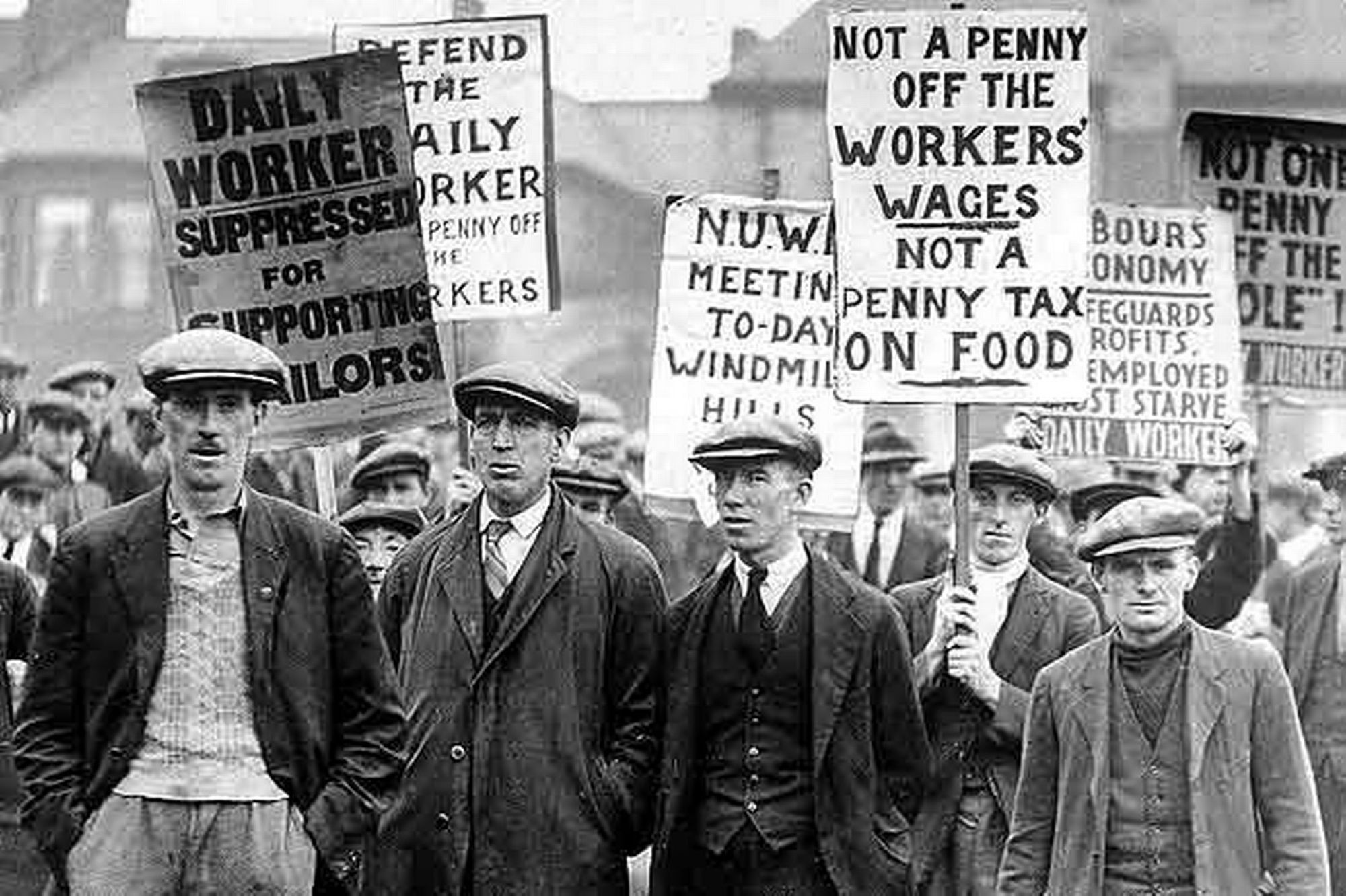
That strike was called by one industry, really in a dispute over wages in one industry. Today would be very different, with millions upon millions of people being thrown into effective poverty.
A general strike today would be far more damaging to the government and to the country, and could realistically force a general election after a vote of no confidence in the House of Commons.
One would suspect that things would need to be nigh-on apocalyptic for the self-serving invertebrates in the Conservative Party to vote in favour of a vote of no confidence in itself, particularly when they're on the brink of electoral annihilation. But one would suspect if the country was genuinely falling apart, it might be plausible.
Chances of happening: 3/10
Damage inflicted: 9/10
Option 3
Truss clings on
The third option sees Liz Truss hold on until the next general election is due in January 2025. That's two years and three months from now, and that seems like an impossibly long time to survive.
However, there is going to be a reluctance amongst Conservative MPs to change leader again, despite how badly Truss is performing. There will be growing pressure if the Conservatives go to a second leader who has not been democratically elected by the wider population that a general election be called. They also know they face a mass extinction event at the polls. They may hope to ride out the wave, and attempt to use Truss's weak standings to influence policy in exchange for support.
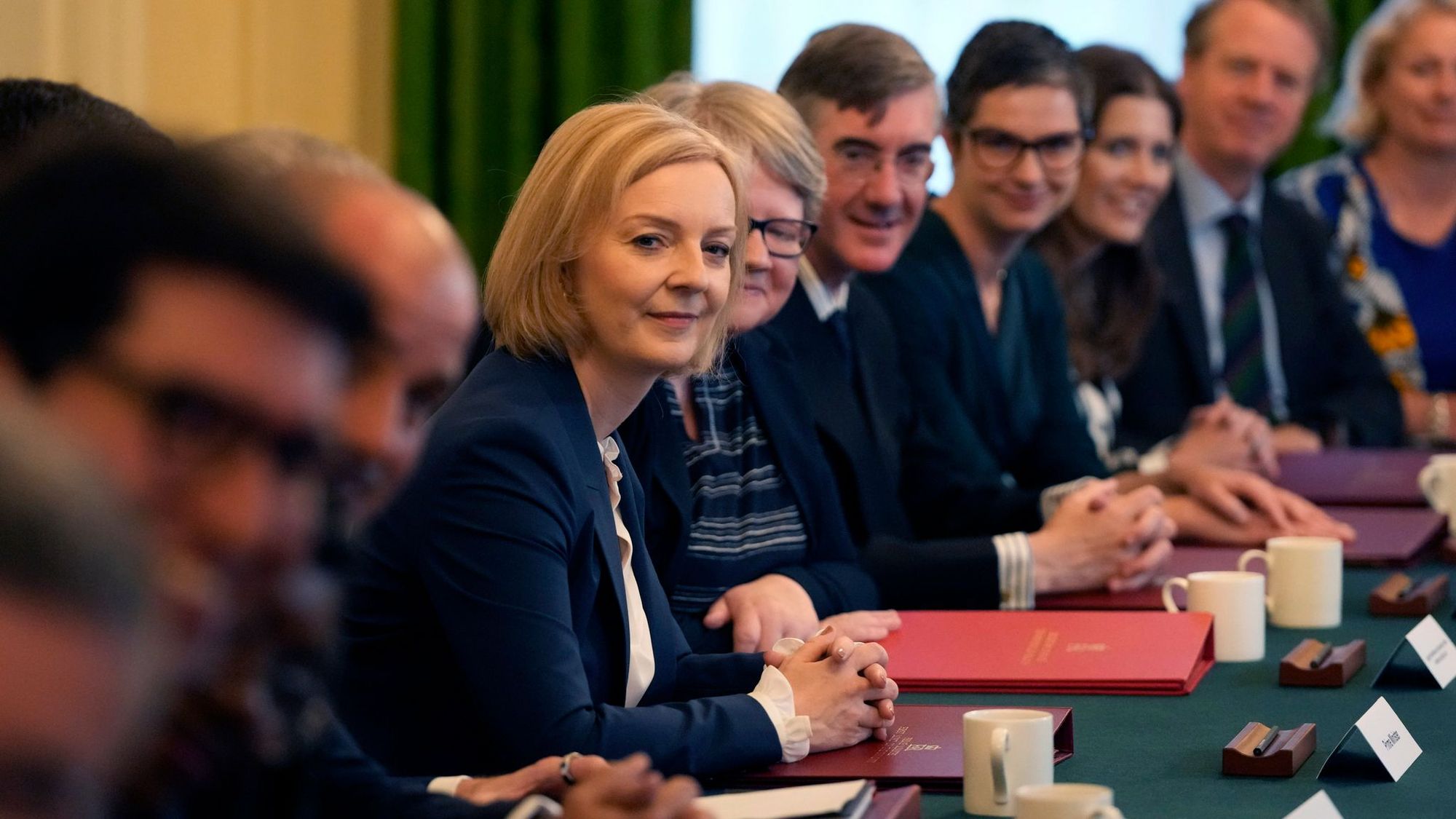
In a normal, functioning society, this option wouldn't be possible. In modern Britain, it almost feels like the most likely.
I think that this is probably what they will try to do, but I suspect that the sheer scale of the incompetence at 10 Downing Street will force their hand. The government will quite likely cause or oversee a total economic meltdown, at which point Option 1 or 2 will kick in. They may try to borrow their way out of the problem, but the apparent complete absence of economic understanding will likely render these schemes expensive failures.
One possibility would be that Truss – if she has any semblance of intelligence – extends an olive branch to the wider Conservative Party. She holds her hands up, admits she got it wrong, and invites moderates back into the fold.
It seems unlikely that she would, firstly, have the self-awareness to this and secondly that any moderates would return to the front bench.
Chances of happening: 4/10
Damage inflicted: 8/10
So, there we have it. None of these outcomes, you'll note, are rated less than moderate on the damage scale. In all likelihood there is a significant amount of pain hurtling down the road towards us. I cannot see how millions of mortgage holders aren't going to feel the pain in the coming months. I cannot see how, even with the energy cap (or, more accurately, the taxpayer subsidising energy profits) how millions of households and businesses aren't going to be pushed towards poverty or the risk of collapse.
There are, of course, plenty of ways to navigate this crisis. Sensible taxation coupled with targeted support would go a long way to calm the markets and limit the rise of interest rates. Sensible announcements on investment in the energy market and unlinking the price rate connection between green energy and gas prices would also help.
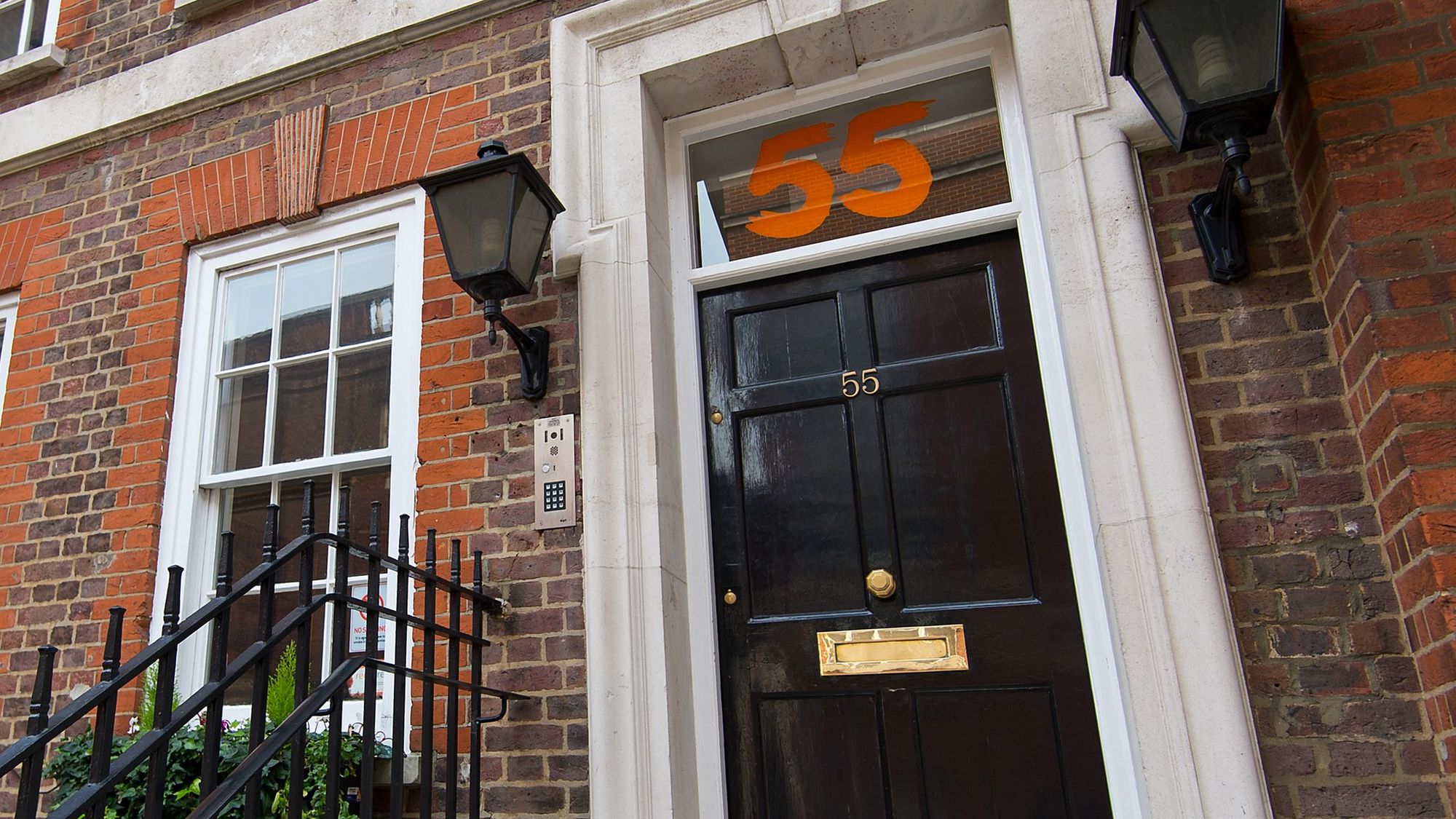
It's not that there's not a way through this, it's that the Conservative Party are so unwilling to take it that they appear not to know of its existence. It's not that they are still influenced by 55 Tufton Street or the lobbyists from banks and fossil fuel companies, it's that they're now being run by them.
Their ideological zealotry is now so intense and so profound that it must be pursued at the expense of all.
So instead of progressive and long-term planning, the Conservative Party is instead caught in a loop of self-destruction. Unless they can find a way to break that cycle then they will be utterly wiped out at the next General Election. They will be unlikely to return to government for many years. They will have no choice but to completely rebuild the party from the ground up and attempt to undo the damage that Cameron, May, Johnson and Truss have caused. It will take a long time to wash away the stench of the xenophobic "Go Home" vans, the aristocratic whiffs of the "deserving poor" and the fumes of all-out corruption that billowed from Johnson's Downing Street.
As a centre-left progressive, this is a good thing in the long-term. These people cannot be trusted to run the country. In their current form, their populist right-wing policies will wipe out a century of Britain's progress and prosperity.
One silver lining of the suffering that's coming our way is that it might – one can hope – open the eyes of some voters that Brexit should be undone. It will depend how deeply the propaganda and misinformation has permeated their psyche, but I still hold some hope. Surely, even in the minds of the most politically apathetic, if they see stories of pensioners freezing in their homes, with strikes and staff shortages and an anaemic NHS this Christmas, they might look around and realise they've been peddled a lie.
I do suspect that Keir Starmer is biding his time on that one. He knows that any rejoin campaign or policy position would still be electorally very damaging at this moment in time. The penny has far from dropped for most. Whilst the so-called "Red Wall" might have woken up to the realities of Conservative rule, it still voted for Brexit in huge swathes. And it would seem that there is somehow still enough plausible deniability about Brexit to protect this conviction. Starmer knows this.
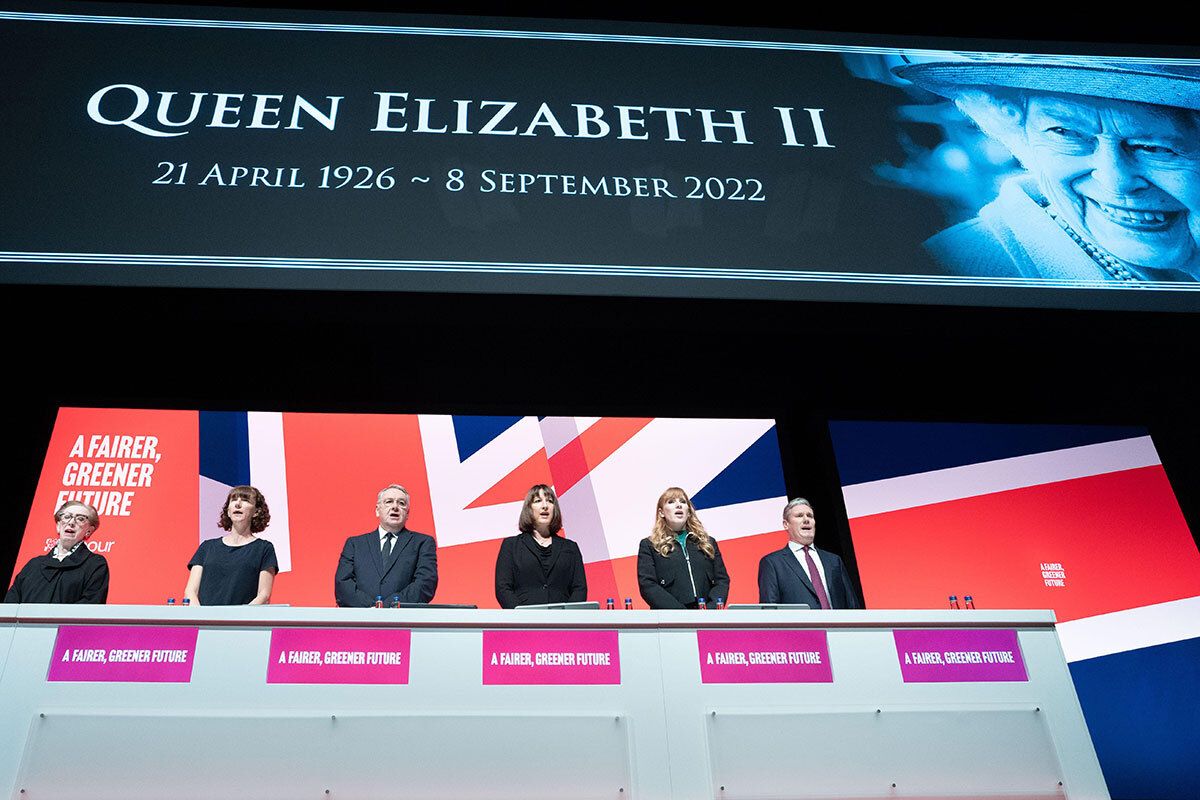
I was struck, however, that after years of the Labour Party Conference barely being mentioned in the press, and being ridiculed when it was mentioned, that suddenly every media suit showed up this year. The coverage was much improved, and suddenly Starmer and his team unveiled a raft of sensible, popular policies eg. renationalising the rails and a national green energy company. These polices are widely supported in opinion polling, and suddenly the media environment is supportive enough to cover them.
He could have launched at any time, but he's chosen precisely the right place and time to unveil them this time around.
I sincerely hope he's doing the same with Brexit, and the prospect of rejoining.
If things get as bad as it appears they might, there will come a time and place where a policy to rejoin the European Union – provided the messaging is spot on – is not just electorally tolerated, but a vote winner.
Just hours after finishing the first draft of this blog, supposed "Brexit hardman" Steve Baker spoke at the Tory Party Conference. He apologised (!) for his behaviour towards Ireland and the EU during the Brexit negotiations.
He stated that he didn't "always behave in a way which encouraged Ireland and the European Union to trust us to accept that they have legitimate interests".
"I am sorry about that," he added.
In Brexit fantasy land, that is a monumental softening. A sign that there is an understanding that Brexit isn't working, and the first indications that the hardliners might be preparing to accept the beginning of a new era of rowing back on some of the ridiculous rubbish that was peddled.
In conclusion, the Tories are most likely finished. Twelve years of austerity (so far) and ever-increasing polemical populist ranting have finally brought the country to its knees. At last the people seem to be waking up, at least partially, to what's been happening.
The only question is how much damage is caused before they finally vacate the halls of power.
To find out, alas, we can only wait and see.

